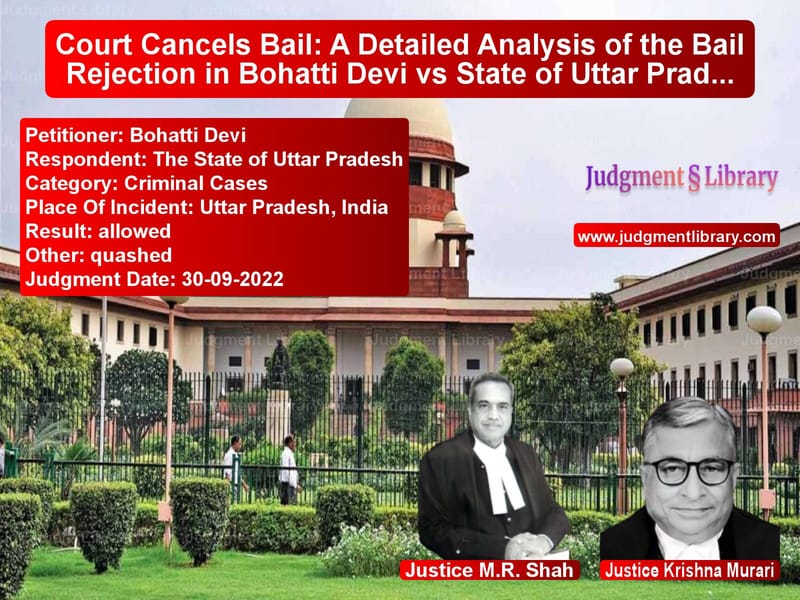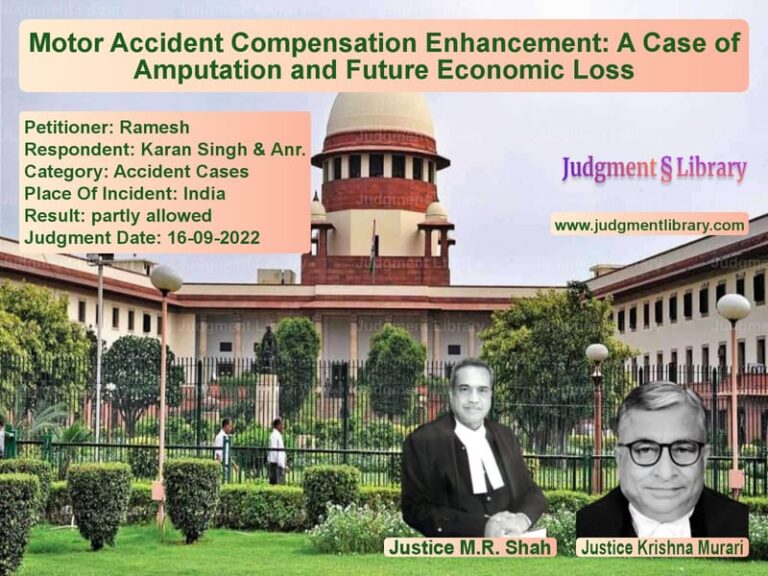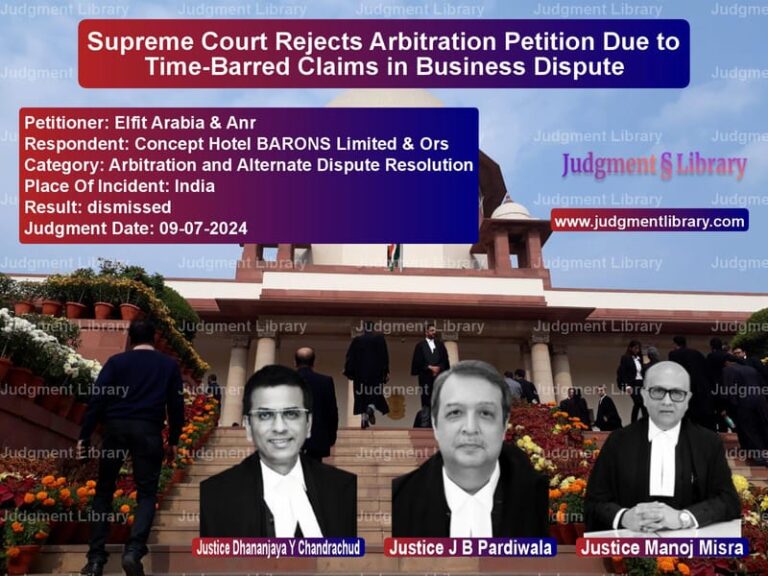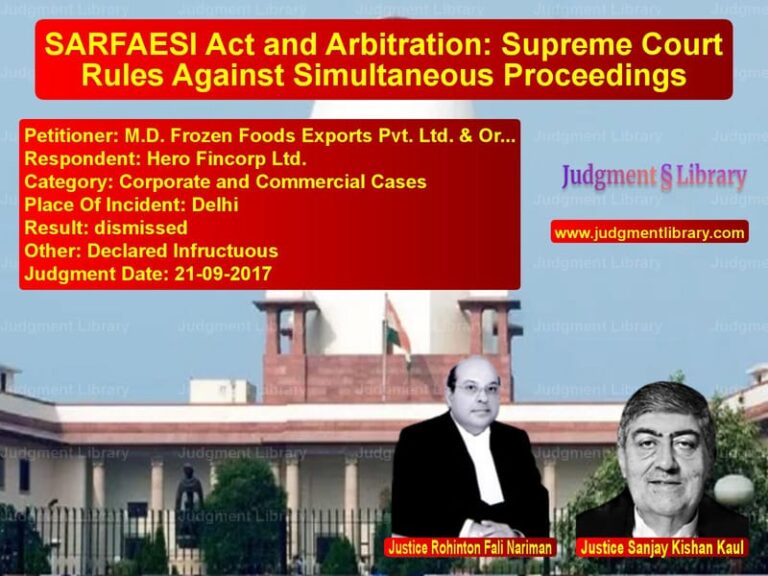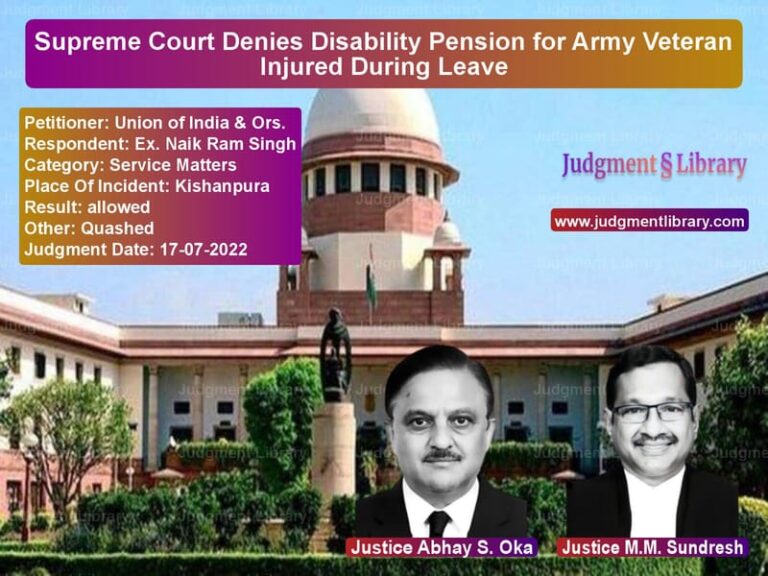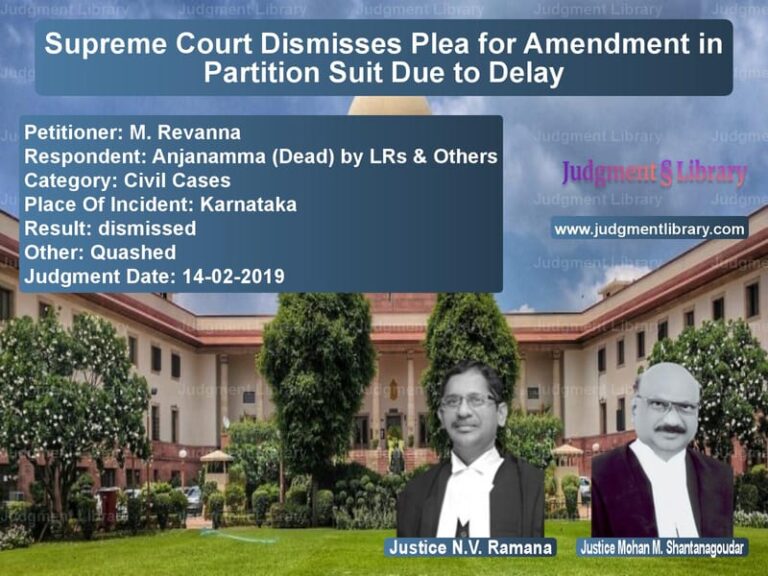Court Cancels Bail: A Detailed Analysis of the Bail Rejection in Bohatti Devi vs State of Uttar Pradesh
The case of Bohatti Devi vs The State of Uttar Pradesh revolves around the appeal filed by the original complainant, now the State, against the Allahabad High Court’s decision to grant bail to the accused in a serious murder case. The respondent, facing charges under Sections 302 (murder) and 120B (criminal conspiracy) of the Indian Penal Code (IPC), had been granted bail by the High Court, which was later contested by the State in the Supreme Court.
Background of the Case
The respondent in this case is accused of involvement in a heinous crime, where the victims were allegedly murdered, and the respondent is charged with both murder and conspiracy. The crime was serious, and the charges against the respondent were backed by significant evidence. However, the High Court had granted bail to the respondent despite the severity of the allegations, and this decision became the subject of the present appeal.
The case had seen several stages, including the dismissal of an earlier petition filed by the accused to quash the criminal proceedings under Section 482 of the Code of Criminal Procedure (Cr.P.C.), which was dismissed by the High Court. Additionally, the Supreme Court had also dismissed a special leave petition filed by the respondent against the High Court’s order. Despite this, the respondent was granted bail, leading to the current appeal by the State.
Read also: https://judgmentlibrary.com/appeal-on-bail-granted-in-criminal-case-supreme-court-judgment-analysis/
The Petitioner’s Arguments
The petitioner, representing the State of Uttar Pradesh, argued that the High Court’s decision to grant bail was flawed, as it had not considered the seriousness and gravity of the offense adequately. The petitioner pointed out that the High Court had failed to take into account crucial facts such as the respondent’s prior attempt to quash the criminal proceedings, the dismissal of the application under Section 482 Cr.P.C., and the fact that a non-bailable warrant had been issued against the respondent.
The petitioner further emphasized that the High Court had not given sufficient consideration to the material forming the charge sheet, which included significant evidence against the accused. The decision to release the respondent on bail was, therefore, argued to be unsustainable. Additionally, the petitioner noted that the High Court had not appropriately examined the role of the respondent in comparison to the co-accused, which was a critical aspect of granting bail.
The petitioner also pointed out that the High Court had made no cogent remarks or given valid reasons for granting bail to the respondent, particularly in such a serious case. This failure to provide adequate reasoning was cited as another ground for quashing the bail order.
The Respondent’s Arguments
The respondent, through their counsel, defended the High Court’s decision to grant bail, arguing that the allegations against them were not substantiated by sufficient evidence at that stage of the trial. The respondent also maintained that the charges were serious, but no irreversible harm would occur if bail was granted. The respondent’s counsel pointed out that the High Court had granted bail after carefully considering the circumstances and the respondent’s legal rights.
Furthermore, the respondent’s legal team highlighted that their client had been cooperating with the legal proceedings, and there was no likelihood of the respondent fleeing or tampering with evidence. They emphasized that the High Court had granted bail based on parity with other co-accused, who had also been granted bail, and that there was no compelling reason to interfere with the High Court’s decision.
The Court’s Analysis
The Supreme Court, while reviewing the case, focused on the critical aspects that the High Court had overlooked when granting bail. The Court observed that the High Court had not sufficiently taken into account the seriousness of the crime, which involved both murder and criminal conspiracy. The Court noted that the bail decision was made without considering the substantial evidence that was part of the charge sheet.
The Supreme Court emphasized that when granting bail in serious criminal cases, especially those involving murder, the court must thoroughly evaluate the gravity of the crime, the strength of the evidence, and any possibility of the accused interfering with the trial. In this case, the Court found that the High Court had failed to consider these factors adequately, which led to the quashing of the bail order.
Additionally, the Court took note of the fact that the respondent had a prior history of attempting to quash the criminal proceedings, and this should have raised concerns regarding their intent and likelihood of tampering with the legal process. The non-bailable warrant issued against the respondent was also a significant factor that the High Court had not sufficiently accounted for when deciding on the bail.
Final Judgment
The Supreme Court concluded that the High Court’s decision to grant bail was flawed and unsustainable. The Court quashed the bail order passed by the High Court, directing the respondent to surrender before the concerned jail authority or court within two weeks. The Court also issued a directive for the respondent’s arrest if they failed to comply with the surrender order.
The Court emphasized that the respondent would still have the opportunity to present their case during the trial, and the trial court was instructed to proceed with the case on its merits. The Court further made it clear that its order was specific to the issue of bail and should not influence the proceedings of the trial in any way.
Significance of the Judgment
This judgment highlights the Supreme Court’s approach to ensuring that bail decisions are made with due consideration of the seriousness of the offense and the strength of the evidence. The Court reaffirmed that in cases involving severe charges such as murder and conspiracy, courts must ensure that bail is granted only when it is justified by the circumstances of the case. The decision underscores the importance of providing cogent reasons when granting or denying bail, especially in cases that could have significant implications for the victim’s family and society.
The ruling also reflects the Court’s commitment to ensuring that the legal process is not undermined by premature bail decisions that could jeopardize the investigation or lead to a miscarriage of justice. This judgment serves as a reminder to the lower courts to scrutinize the gravity of the crime and the potential risk posed by granting bail, particularly in serious criminal matters.
Petitioner Name: Bohatti Devi.Respondent Name: The State of Uttar Pradesh.Judgment By: Justice M.R. Shah, Justice Krishna Murari.Place Of Incident: Uttar Pradesh, India.Judgment Date: 30-09-2022.
Don’t miss out on the full details! Download the complete judgment in PDF format below and gain valuable insights instantly!
Download Judgment: bohatti-devi-vs-the-state-of-uttar-p-supreme-court-of-india-judgment-dated-30-09-2022.pdf
Directly Download Judgment: Directly download this Judgment
See all petitions in Murder Cases
See all petitions in Bail and Anticipatory Bail
See all petitions in Judgment by Mukeshkumar Rasikbhai Shah
See all petitions in Judgment by Krishna Murari
See all petitions in allowed
See all petitions in Quashed
See all petitions in supreme court of India judgments September 2022
See all petitions in 2022 judgments
See all posts in Criminal Cases Category
See all allowed petitions in Criminal Cases Category
See all Dismissed petitions in Criminal Cases Category
See all partially allowed petitions in Criminal Cases Category

